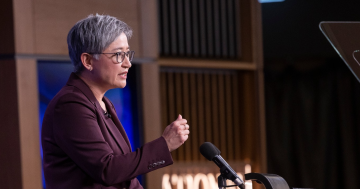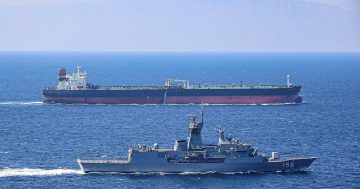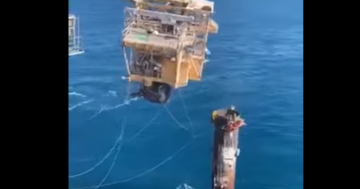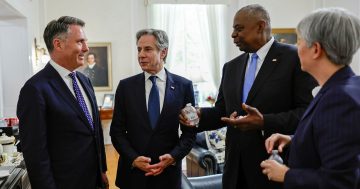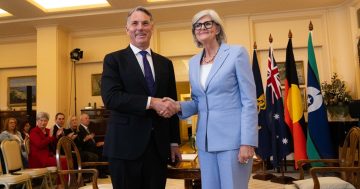While fighting continues between the Yemeni Government and Houthi rebels, Pierre Boussel* says renewed diplomatic relations between Iran and Saudi Arabia may invigorate peace talks.
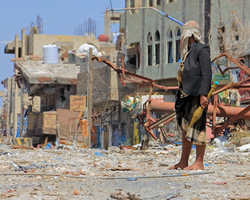 The civil war in Yemen, now in its ninth year, has ravaged the Middle Eastern nation of 33 million people and remains fuelled by control over the oil industry.
The civil war in Yemen, now in its ninth year, has ravaged the Middle Eastern nation of 33 million people and remains fuelled by control over the oil industry.
However, the restoration of diplomatic relations between Iran and Saudi Arabia, two nations supporting opposite sides in the conflict, has given renewed hope for ending the fighting.
In one of the world’s worst humanitarian disasters, half the Yemeni population needs financial and food assistance — yet the fighting goes on, driven by the familiar prize of oil.
Block 18 is one of the country’s most productive oil fields, ideally situated on the shores of the Red Sea, yet the field is barely functioning, and security conditions are precarious.
Oil is the major source of revenue for the Yemeni Government, backed by Saudi Arabia, to support its war effort against the Houthi rebels, whom Iran supports.
Other parts of the economy are in dire shape. Yemen imports nearly 90 per cent of its wheat and all its rice.
Financial loans from the International Monetary Fund and the Arab Monetary Fund have been secured. However, most of it goes to pay Public Servants and the army.
The Houthi rebels also want to benefit from oil revenue, including paying the salaries of the Public Servants in the regions they control.
Without revenue sharing, they threaten to continue harassing supertankers off the Yemeni coast.
The ultimate risk is that the Houthis will cut off the international shipping route through the Red Sea.
While its own oil production is modest, the Yemeni equation affects the world hydrocarbon market, given the involvement of Saudi Arabia, the world’s second-largest oil producer, and gas-rich Iran.
Although the Houthis control the capital, Sanaa, as well as a good share of the north-west, their access to fossil fuels remains a challenge.
Their latest offensive failed to control oil sites in Marib, but they are not giving up, convinced that this is the right strategy.
Indeed, threatening oil infrastructure is a way of grabbing the attention of an international community otherwise tired of this endless conflict.
It is also a powerful message from Iranian leaders, the Houthis’ main ally, to remind the international community that Teheran can influence the global hydrocarbon market.
According to security sources, the Houthis have dug two small channels to hide speedboats that could appear in the open sea and launch lightning attacks on maritime traffic.
They have also launched two drone attacks on oil terminals in Hadramout and Shabwa.
International companies are throwing in the towel.
Canadian company, Calvalley Petroleum has suspended its activities in Hadramout. TotalEnergies of France wants to leave Yemen altogether.
The United Nations’ special envoy to Yemen, Hans Grundberg, is working on a political solution.
Meanwhile, Saudi Arabia participates in the UN process but remains convinced that only direct talks with Houthi leader, Mahdi al-Mashat would be effective.
Mr Mashat has agreed to bilateral meetings but insists that any future peace agreement must exclude the current Yemini Government, something Riyadh rejects.
As fighting continues, rumours of a quiet resumption of talks are circulating in the Arab press.
Houthi spokesperson, Mohammed Abdel Salam confirmed the existence of “talks back and forth with other parties” without giving further details.
The Saudi Foreign Ministry says there is a possibility of a negotiated solution, the first step of which could be the signing of a new cease-fire. Iran’s role in this process is unclear.
The rebels are demanding back pay for their Public Servants working in areas under their control, mainly in Sanaa.
They want an entirely restructured Government in which they will dominate the political scene.
They also demand the complete withdrawal of foreign forces and a fair distribution of the benefits of oil activities to the entire Yemeni population.
The unknown remains the resilience of the warring parties and their allies.
Yemen was always a poor country. Today it is crushed by a fratricidal conflict that has spared no one and threatens to destroy the State.
A UN International Donor Conference has come up with just $US1.2 billion ($A1.8 billion) in commitments — well short of what is needed to even begin rebuilding the country.
For the moment at least, Yemen has joined the unenviable group of forgotten conflicts.
*Pierre Boussel is a columnist and researcher specialising in the Arab world. Based in North Africa since 1999, he studies geopolitical issues and works on anticipating the extremist threat.
A fuller version of this article first appeared on the Liechtenstein-based GIS website which provides business leaders and policy-makers with geopolitical, economic and other relevant forecasts.


